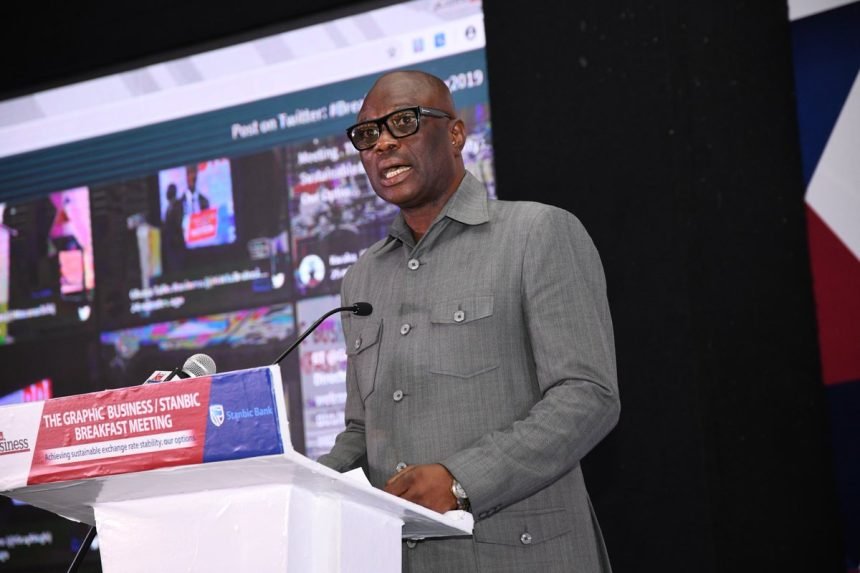Published
3 months agoon
By
Adubianews
The Ghana Union of Traders’ Associations (GUTA) has cautioned the government against rushing the rollout of Artificial Intelligence systems at the ports when the current tax environment is already overwhelming traders.
The Association argues that the newly introduced VAT reforms have thrown many businesses, especially small and medium enterprises, into financial distress and confusion. It insists that all taxes at the ports must be rationalised before any AI system is implemented.
In a statement issued on November 18, First Deputy Secretary General Richard Amamoo said GUTA has been following the VAT changes “with grave concern.”
He noted that while the government’s intention to strengthen revenue mobilisation is understandable, the new measures are already creating severe distortions in the trading space.
According to him, the revised VAT threshold has introduced unfair segregation in the marketplace. He explained that two traders selling identical products in the same market are now being treated differently simply because of turnover differences.
Under the new structure, traders whose turnover exceeds GH¢750,000 must charge an additional 20 per cent VAT, while those below the threshold remain exempt. Mr Amamoo warned that this will drive customers towards exempted traders, leaving others at a significant competitive disadvantage.
He added that traders who previously paid a 4 per cent flat rate VAT are now required to charge a 20 per cent VAT because their turnover crossed the new threshold. He highlighted the daily turnover exemption of GH¢2,366, noting that exceeding this amount automatically pushes traders into the standard VAT regime.
Mr Amamoo said this shift results in higher consumer prices and potential loss of business for affected traders.
GUTA is therefore calling for parity and fairness in the system. The Association wants the government to allow traders to choose a modified tax arrangement that ensures equal opportunity across the sector. Such fairness, he said, will boost voluntary compliance and reduce non-compliance driven by market pressure.
Mr Amamoo acknowledged the government’s plan to deploy AI technology at the ports to enhance operational efficiency. While GUTA supports digital tools that improve trade facilitation, he stressed that the tax challenges must be resolved first.
He reiterated that “all taxes at the port be rationalised before the implementation of AI systems,” adding that the union remains committed to working with the government to ensure the VAT reforms meet their objectives without harming the livelihoods of Ghanaian traders.


GUTA Urges Ato Forson to Sustain Ghana’s Economic Gains


“Ghanaians in Nigeria will pay for the consequences for attacking us” – Nigeria Traders in Ghana warns


GUTA calls off its nationwide demonstration


Bloody Clash Ensued Between GUTA and Nigerians At Circle -WATCH VIDEO


Coronavirus: We’ll soon run out of spare parts, herbal drugs – GUTA bemoans

























